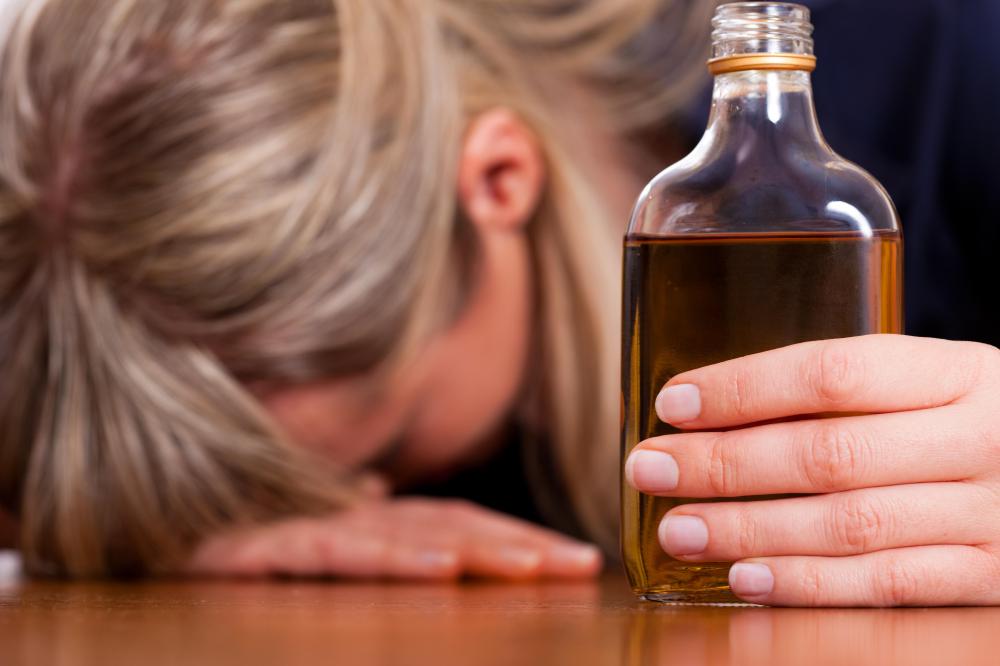At WiseGEEK, we're committed to delivering accurate, trustworthy information. Our expert-authored content is rigorously fact-checked and sourced from credible authorities. Discover how we uphold the highest standards in providing you with reliable knowledge.
What is an Alcoholic Relapse?
An alcoholic relapse occurs the moment a person in alcohol recovery drinks an alcoholic beverage. Relapse can include the otherwise minor act of taking a single swallow of alcohol after entering a period of alcohol detoxification or may include a major incident involving binge drinking. Alcoholic relapse is a serious condition for individuals with a history of alcohol abuse and may occur many times despite a person’s commitment to stop drinking.
Alcoholism is a life-altering disease that affects the individual drinker, as well as friends, family members and others sharing an environment with an alcoholic. Not only does alcoholism involve impaired judgment, but it is a leading cause of traffic accidents, domestic abuse and physical health threats such as liver cirrhosis and Wernicke-Korsakoff syndrome. As individuals afflicted with alcoholism realize the damage that alcohol abuse causes to their lives and to the lives of others, many voluntarily begin a process of alcohol recovery. The most important step in this process is the strict avoidance of alcohol. When alcoholic relapse occurs, however, a person is once again at risk for all of the perils they sought to escape with recovery.

The causes of alcoholism may also cause an alcoholic relapse. Some of these causes include emotional stress, an attempt to solve sleep disorders and social triggers, such as being in an environment where others are drinking and the craving for alcohol is, once again, ignited. Despite a person’s will to not engage in drinking, triggers such as these are often too strong to avoid and may cause alcoholic relapse.

Alcoholism and binge drinking are also closely related in that this type of drinking often begins during a person’s teen or young adult years and quickly develops into teenage alcoholism or adult alcoholism. Mostly, this condition begins through association with others who are also binge drinking. Even after recovery from this condition, which often includes alcoholism counseling, many fall victim to alcoholic relapse when placed in situations similar to the ones that prompted their alcoholism and binge drinking to begin with.

Experts in treating alcoholism find that alcoholic relapse is a common occurrence. Many will start, stop and restart alcohol recovery several times, even while engaging in direct treatment for alcohol. The process of attempting alcohol detoxification may even contribute to the cause of alcoholic relapse, as the physical impact of abstaining from alcohol, such as body tremors, nausea and vomiting, often become too great for a person during the withdrawal phase.
AS FEATURED ON:
AS FEATURED ON:














Discuss this Article
Post your comments